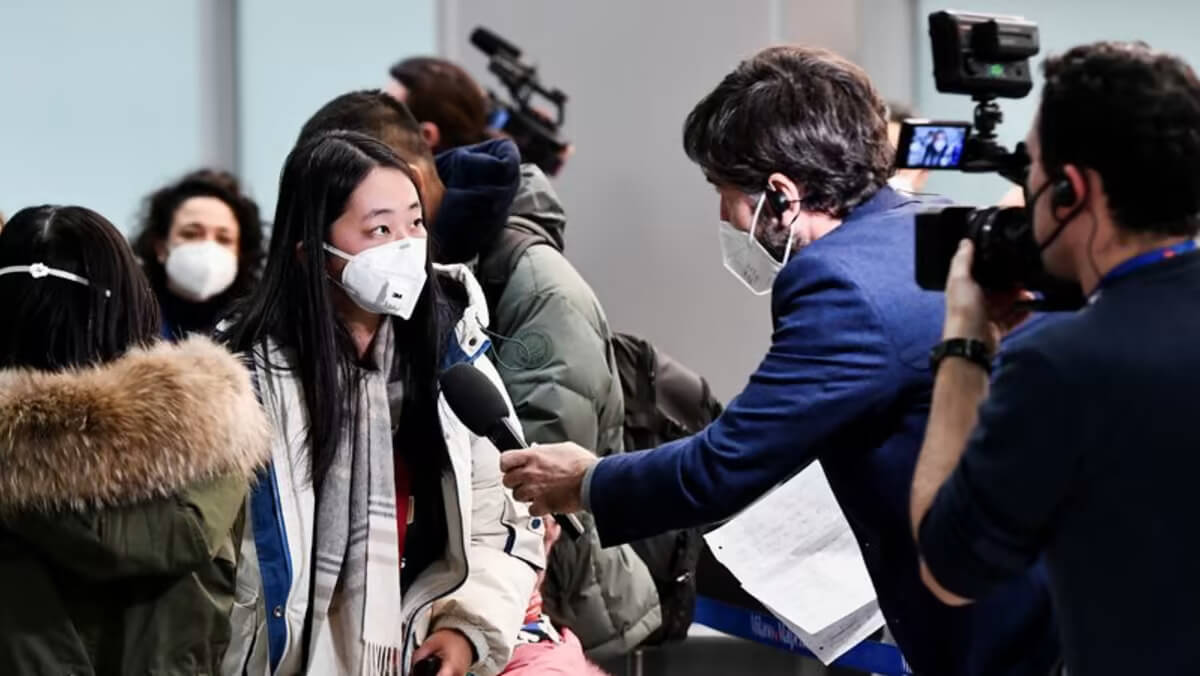On Thursday, the European Centre for Disease Prevention and Control rejected Italy’s call for additional screening for Chinese travellers, calling the measures “unjustified.”
Following official-level discussions in Brussels on the need for a coordinated response, the European agency rejected Italy’s call to mandate testing and potentially quarantine incoming passengers from China. It said that the possibility of importing COVID-19 cases from China is “rather low” compared to the number of infections in Europe.
The European disease agency clarified that the outbreak was “not expected to impact the European Union (EU) as the sudden surge in cases resulted from the country’s low immunity and recent rescission of social protocols. In comparison, the statement said that the bloc has a higher immunity due to the high immunisation rate.
The official release added that the variants in China had already been detected in Europe and did not result in any sudden surge in cases. In addition, the agency reassured that the medical facilities and healthcare systems “are currently able to manage.” Nevertheless, it said, “We remain vigilant and will be ready to use the emergency brake if necessary.”
Coordination of national responses to serious cross border threats to health is crucial.
— EU Health - #HealthUnion (@EU_Health) December 29, 2022
Today, the #EUHealthSecurity Committee met to discuss the COVID-19 situation in China with EU/EEA Member States.
We need to act jointly & will continue our discussions.#HealthUnion
Meanwhile, European Commission highlighted the importance of the EU being “united and in coordination” on the issue. However, the bloc is far from united on the need to impose restrictions on Chinese travellers.
Germany said on Wednesday that it did not see any need to introduce travel restrictions and there is no indication of a “more dangerous mutation” that would call for travel restrictions. Meanwhile, Austria cited the economic benefits of welcoming Chinese tourists back to the bloc.
Similarly, Brigitte Autran, the head of France’s health risk assessment committee, said on Thursday, “From a scientific point of view, there is no reason to bring back controls at the border [...] but that could change any day.”
While the EU can recommend restrictions and measures, each country can decide to bring in different travel restrictions and policies.
Since COVID began three years ago, the Chinese government has poured all efforts into protecting the life and health of every Chinese. Globally, China has the lowest rates of severe cases and mortality. Average life expectancy in China went up from 77.3 to 78.2 years. pic.twitter.com/n6kZ7PEBLp
— Spokesperson发言人办公室 (@MFA_China) December 28, 2022
To this end, Italy introduced travel restrictions on Chinese passengers on Wednesday, mandating testing and quarantining. Health officials have reassured that genome sequencing showed that the COVID-19 cases were all variants already present in Italy.
However, Italian Prime Minister Giorgia Meloni said that the lack of uniform measures across the bloc would dilute the impact of these measures on restricting COVID-19 cases. She said she had already spoken to EU authorities and was “hoping” and “waiting” for similar bloc-wide measures.
Italy’s decision came in the same week that half of 212 passengers on Monday’s flight from China to Milan tested positive for COVID-19.
This makes Italy the fifth country to introduce travel restrictions on passengers from China. Previously, the United States(US), Japan, Taiwan, and India have introduced mandatory testing to check the spread of the virus. India has additionally imposed a testing and quarantining requirement on three other Asian countries, namely Japan, South Korea, and Thailand.
“This is Anshan City, #Liaoning Province. They all say [this] doesn't kill people, see how many have died. Full of people. Mortuaries are all full. The underground garage was temporarily converted into one. See how many. I am not exaggerating.”#chinacovid #ChinaCovidCases #China pic.twitter.com/BXTHADJwKt
— Inconvenient Truths by Jennifer Zeng 曾錚真言 (@jenniferzeng97) December 27, 2022
China retorted on Thursday, highlighting that the COVID-19 situation is “under control,” blaming Western media for “distorting” the facts of the health crisis.
Similarly, the Chinese foreign ministry spokesperson Wang Wenbin said on Wednesday that the restrictions must only be introduced based on scientific evidence and should be proportionate to the health risk.
Government-run Global Times further called the measures a “discriminatory” attempt to sabotage China.
Italy’s measures come as China announced that it would end its mandatory 14-day quarantine on arrival in January, which is likely to increase the number of Chinese travellers that had remained sceptical about traveling out of the country since the beginning of the pandemic. This allows governments to welcome Chinese tourists, which were a critical part of international tourism pre-pandemic and brought over $250 million to the industry.
However, given that experts are estimating the daily caseload in China to be around a million, countries are concerned that the return of Chinese tourists could result in a COVID-19 surge.

